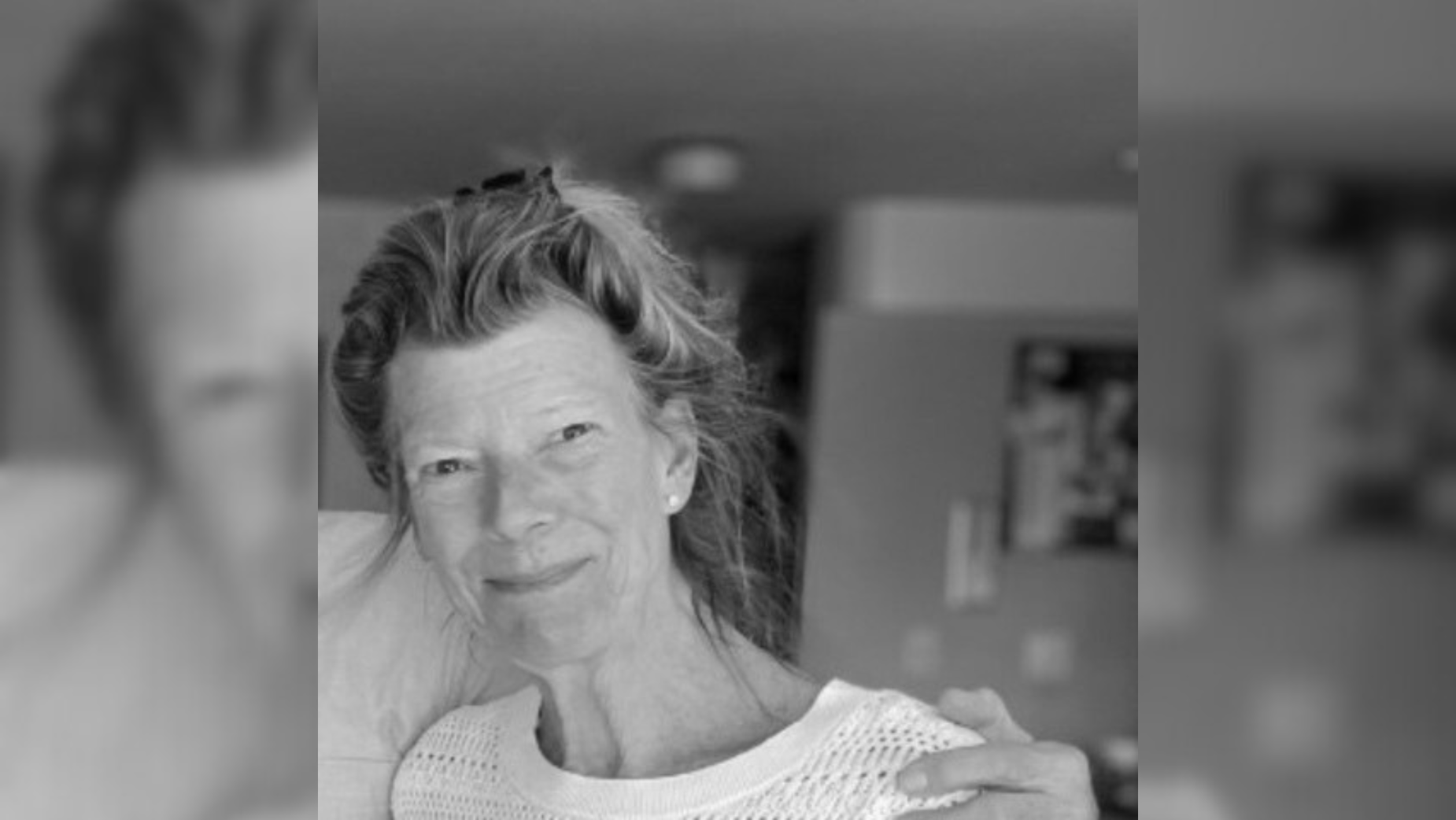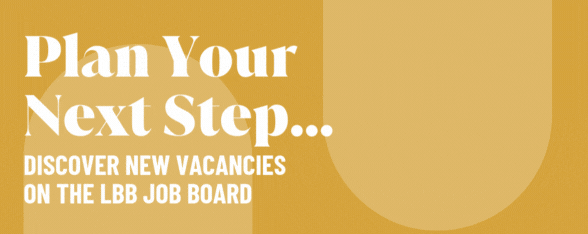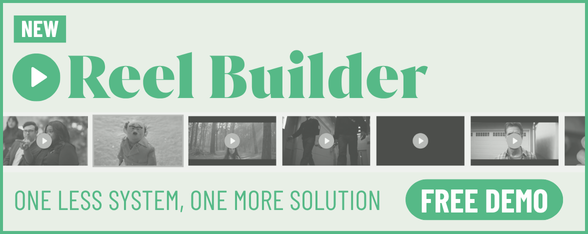
Meet Your Makers: Lee Weiss Was Born a Problem-Solver

Lee Weiss is a NY-based executive producer and director’s rep. The agenting part is still fairly new but the agency EP role spans about 30 years of experience at the likes of DDB, Chiat Day and Ogilvy NY.
Completely 'at home' within any and all budgetary realities, Lee love’s collaboration, partnership, and making stuff. Her communication skills cannot be beat and problem-solving warms her heart. Always a leader and a mentor, she has earned the title of “Mama-Lee” from any and all who have had the pleasure of working alongside her.
In her spare time she walks (and walks) throughout New York City and reads voraciously, for herself and to the delight of a wonderful assortment of toddlers at the NY Public Library.
LBB> What first attracted you to production - and has it been an industry you’ve always worked on or did you come to it from another area?
Lee> I was gripped by the 'production bug' as a college senior. A lot of my friends were at NYU School of the Arts, studying film.
While I spent hours upon hours in the library writing papers about the Italian Renaissance, they were all largely on-set working as PAs for Martin Scorsese ("Boxcar Bertha"). Martin was a professor there at the time, and he helped each and every one of his students find jobs upon graduation.
Meantime, thinking I would continue to study (had visions of being a curator), I couldn't get a job sweeping gallery floors. So a friend mentioned that a sweet little production company needed a staff PA/receptionist (total entry-level) - I made the call and 48 hours later reported to work. That was the start.
"Good Morning, Directors Group Motion Pictures, how may I help you?" ...my company shared a large space with another production company (Directors Circle). Everyone was so nice, worked so hard, taught me so much and seemed eager to answer my many questions. I was in heaven.
A wonderful director (Joe Kohn) wanted to go out on his own, and gave me the opportunity to be his producer. I was thrilled and terrified, and told him so. He said: "Don't worry, I'll teach you and you will become an amazing producer." So that worked out well.
After a couple of years with Joe, another opportunity fell into my lap and I went to work for another director (Bill Helburn). That was quite a switch: Joe was the king of P & G, whereas Bill was a prominent fashion man.
One of my first jobs as his producer took us to LA to shoot a couple of spots with Chris Evert for Everynight Shampoo. Stage shoot, simple as pie, basically all on Chrissy as she was swatting the ball back and forth with one of her trainers. Said trainer accidently lobbed the ball directly into the sych. I had literally no idea what the costs to repair that sych would be. The entire crew came to console me.
It all worked out but in that moment I assumed my career was over; and learned a huge lesson: know everything about what you are walking into. Everything.
LBB> A good producer should be able to produce for any medium, from film to events to digital experience. Do you agree or disagree with this statement? Why/why not?
Lee> "A good producer should be able to produce for any medium". This is absolutely the world we live in now; we are discouraged to refer to ourselves as "advertisers" but rather we are content providers.
Obviously when it comes to huge events, there are amazing specialists involved, and the same can be said for all of the fast-evolving technologies and innovations of today. The term "integrated producers" became a thing at least half a dozen years ago.
LBB> What’s your favourite thing about production and why?
Lee> My favourite parts of production: teamwork, problem-solving, forming friendships with clients so as to tear down the classic "agency/client" relationship, and rather become a group of allies. Also, for me, tucking interns and baby-producers under my wing and helping them to learn, as I was helped, became a truly joyful part of my work.
LBB> How has production changed since you started your career?
Lee> The production world has changed a great deal since I began. Hate to date myself, but we didn't have computers nor cell phones nor videotape! Everything took more time.
Largely, things were less rushed, and budgets were more generous. There was no such thing as social media or influencers. We went out and shot a lotta TV commercials.
But at the same time, no matter what the assignments of today look like, it's still all about bringing strong ideas to life to the very best of our ability - utilising teamwork, and problem-solving and growing relationships...
LBB> What do you think is the key to being an effective producer - and is it something that’s innate or something that can be learned?
Lee> The keys to being an effective producer can certainly be taught, and are to a certain extent innate. I mean, think about it: EVERY Olympic athlete is pretty much exceptional, but there are always those individuals who simply exceed the others in terms of skill.
Same can be said for most walks of life, no? Certainly this reality is quite prevalent in the arts.
LBB> Which production project from across your career are you most proud of and why?
Lee> For this question, I look to an entire body of work: IBM. I was so privileged to work with the most amazing people during close to 20 years...my agency team, my clients, the directors and editors, everyone. "Regimes" changed but the campaigns continued to roll out in a manner very rarely seen. Consistent, excellent work. And much of the time, there was a lot more laughter than tears.
LBB> Producers always have the best stories. What’s the hairiest / most insane situation you’ve found yourself in and how did you work your way out of it?
Lee> My "hairiest" story: as I approached my 30th birthday, I made the switch from production company producer to agency producer. (little agency then called Doyle, Dane Bernbach). Again, the job plopped in my lap, and again, I was welcomed by a large group of kind and smart people who always did their best to fill-in-the-blanks as I got into a new role.
I was assigned to the Clairol account, and felt pretty much at home in no time at all. Then I was given a great 'gift' and was sent out to do a rather large American Airlines campaign. We shot in Bermuda and Puerto Rico and basically had to make it look like about 10 different islands.
That was the first challenge.
We had a very unhappy client who was seemingly impossible to please, hence a very unhappy account person, understandably creating very unhappy creatives. We had foul weather. We all shared a violent tummy virus. The director was definitely the MVP and kept coming up with ideas that seemed to fly well with everyone BUT required additional money.
His producer humiliated me! Literally chased me on foot with overage reports, cursing at me, threatening me, abasing me. The resolution: I chased my account partner (although politely) and he wrangled the needed funds from the client. In the end, the work turned out pretty darn well. Lesson learned: PARTNER with your account partner.
LBB> What are your personal ambitions or aspirations as a producer?
Lee> My personal aspirations as a producer really come down to doing the job better than I think I can, maintaining a pleasant environment, and all that old-fashioned stuff. We're not doing brain surgery here. As one of the greatest creative directors of my career would gently say (typically at 2:00am in an edit room): "C'mon guys - we're being paid to make things - how cool is that?".
LBB> As a producer your brain must have a neverending "to do" list. How do you switch off? What do you do to relax?
Lee> Believe I was actually born a problem-solver. My mom once said that I was creating to-do lists for the entire family by the age of eight, or something nuts like that. Even if she was exaggerating, I was an early advocate of organisation!
Switching off: simply find/make the time to pursue something else. Anything. Working out, reading, serving soup at a food pantry. Anything. Anything that takes your mind into another place.
LBB> What advice would you give to people who are interested in becoming a producer?
Lee> The advice I have always given to anyone who wants to be a producer (or thinks they want to become a producer!) is as follows:
*Try it out. Do an internship, or accept an entry-level position so as to be a part of an actual, working group. Film school is great - but hands-on experience is, to my mind, the only way to determine if the production path is right.
*Don't ever pretend to know anything that you do not know. That's a direct path to self-destruction! It's fine to say, "Gee, I'll need to check on that, I'll get back to you asap".
My belief has always been that producers truly cannot say "no". Producers are supposed to make anything and everything happen to the satisfaction of all involved. Now, this may well entail 'selling' any part of the overall team on a different way to bring their vision to life, but that's actually a great part of it all. That's collaboration, on a creative level and on a financial reality level.
Of course, we can (literally) make anything happen given enough time & money --- but that is certainly not the norm.
LBB> What’s the key to a successful production-client relationship?
Lee> Respect and honestly. Again, partnering with the client, ie: breaking the wall that differentiates the agency versus the client so as to create a truly unified team effort. That's the ideal situation in my mind.
Listening to others seems so simple, until it is not. But listen we must.
LBB> Producers are naturally hands on - they have to be. How do you balance that in the more managerial role of an EP?
Lee> In my experience, an EP is still forever and always a producer. So line producing jobs is critical to any EP.
At the same time, EPs must teach and advise and protect their producers. They must guide, they must lead, they must manage expectations.










